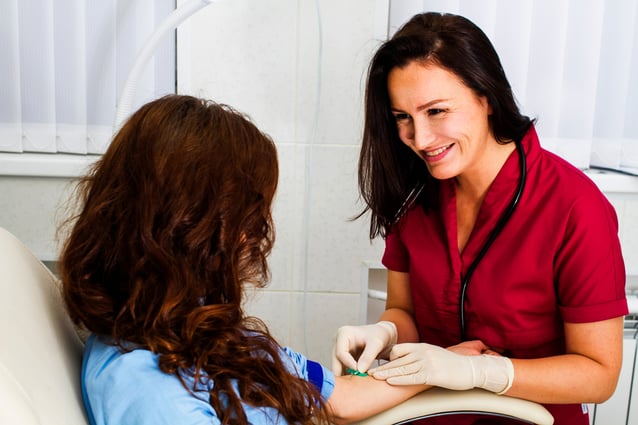
Whether a hospital is in the middle of a significant world health event or working with typical patient volumes, the phlebotomists are one of the many sets of personnel that keep them running smoothly. Phlebotomists take and process blood, which is one of the critical sources of information that helps doctors and their teams to do their work. Too little bloodwork severely restricts diagnoses and treatment. When there aren't enough phlebotomists, these delays in bloodwork can impact the entire hospital, making it harder to treat patients in the ways they need most.
Here are just a few ways in which phlebotomists are part of the life's blood of hospitals.
Phlebotomists Responsibilities
Phlebotomy is vital to hospital work to the point where other staff members, like nurses, pursue a certification in phlebotomy. Thriving as a phlebotomist requires a strong understanding of the circulatory system and how to draw blood and conduct quick, painless, and efficient blood draws. However, blood can be a source of biohazard, making safety precautions crucial. Effective blood draw techniques involve keeping the technician safe while protecting the patient, staff, and other patients by keeping the process and equipment clean.
Furthermore, phlebotomists must take precautions to keep blood samples uncontaminated. They must also have the skill to draw a sufficiently large sample to test. Failing to do so can cause delays, slowing down the entire process. Blood samples sometimes need to be tested immediately for accurate test results.
Handling and transporting samples is another role phlebotomy technicians take very seriously. They handle labeling, organizing, and processing the specimens correctly, which requires attention to detail and knowledge of the bloodwork's purpose to avoid confusing samples and wasting them. Finally, because phlebotomists interact in busy hospitals with both staff and patients, they must understand and respect HIPAA (or the Health Insurance Portability and Accountability Act), which establishes rules for maintaining security around medical information for patients.
The Bottleneck of Good Bloodwork Regimens
While all these tasks may seem specialized and part of diagnosing and treating patients well, hospitals desperately need them. For example, if a patient complains of heart-area chest pains, the symptoms alone cannot reach a complete diagnosis. Doctors use an immediate blood draw and workup of relevant markers to narrow a diagnosis. Once treatment is selected, periodic bloodwork ensures its effectiveness and helps refine further treatment for best effectiveness. The qualities verified in blood samples help doctors and their medical team do their work well. If they don't have a phlebotomist available quickly or overwork them in a disorganized system, it can cause frustrating consequences. Such haphazardness risks repeated blood draws, which are expensive and stressful to the patient, misdiagnosis, or an inability to treat someone's life-threatening symptoms quickly.
The same can be true of a stomach condition or other major health condition. Getting a blood draw can help a doctor determine if stomach pain is a symptom of a major problem or if the bloodwork shows that things are fine and the pain is likely to pass. For complex diagnoses, the movement from one blood draw to the next can be a way to anticipate a problem before the problem occurs since some levels of markers in the blood elevate or drop before a major medical crisis. It's tough to forecast in healthcare, but blood draws are vital for preventative medicine.
Becoming a Phlebotomist and Finding Work Quickly
Phlebotomists are one of the most in-demand fields right now. Getting a phlebotomist certification through Portland Community College is both affordable and fast. In only two terms, phlebotomy tech students learn the critical classroom and lab skills they need to do a great job. They then work a clinical rotation with supervised time to complete dozens of blood draws before applying for work. Phlebotomists are in such high demand that many hospitals will train people on the job. That way, you can start stronger in your role with hands-on experience in a health care facility alongside your training.
Portland Community College is a great place to get credentials that help you learn how to benefit as a phlebotomist. This course and others at PCC aim toward filling highly in-demand roles with Portland, Oregon professionals looking to jumpstart their careers. Sign up today!




